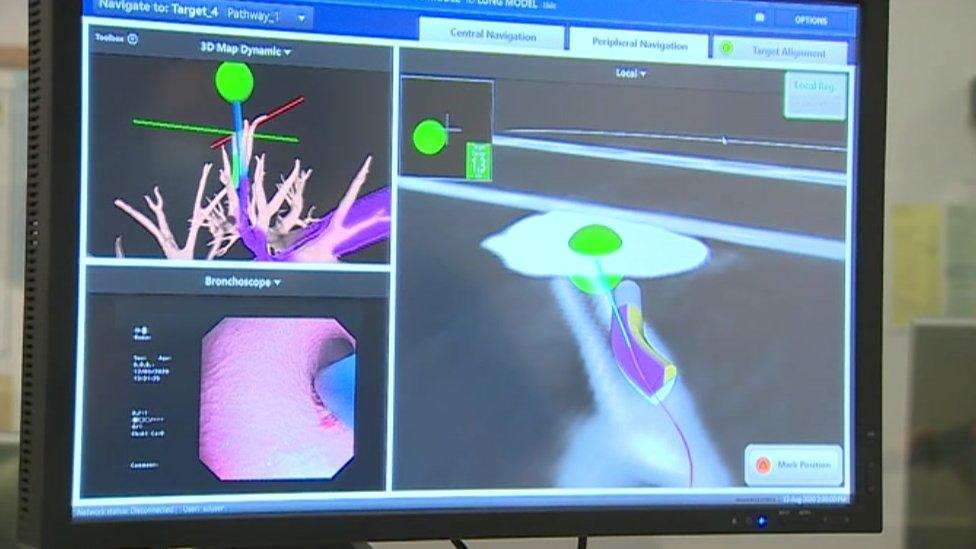Lung cancer: Liquid biopsies could speed up treatment
- Published
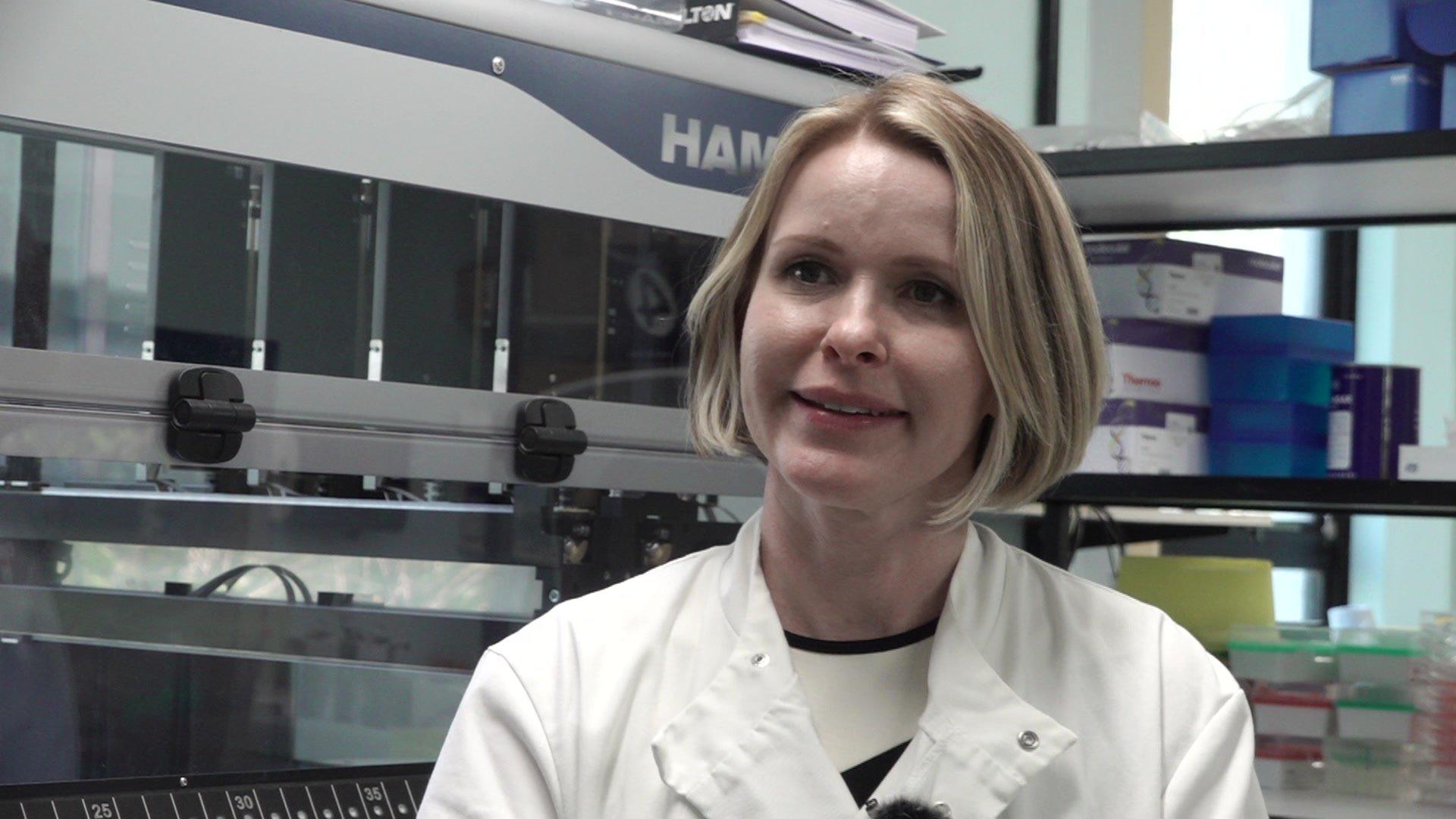
Dr Magda Meissner said speeding up diagnosis for patients is key
A new blood test could dramatically speed up lung cancer treatment in Wales.
Liquid biopsies would remove the need for patients to have uncomfortable tissue biopsies under general anaesthetic.
Dr Magda Meissner of the All-Wales Medical Genomics Service said some patients become too unwell or die while waiting for traditional biopsy results.
A clinical study will determine whether survival rates can be improved.
"Currently patients go through a procedure which can be very invasive and can be risky", said Dr Meissner, a medical oncologist and liquid biopsy lead for the All-Wales Medical Genomics Service in Cardiff.
In a tissue biopsy, DNA is extracted from tissue removed from the tumour site in the lung, which can involve a patient being sedated and may take a few attempts.
However, the liquid biopsy trials will simply take DNA from a patient's routine blood tests.
"We extract the DNA from the blood sample, our machine can then sequence the DNA and provide us with a read-out of 500 genes," she said.
"We then analyse those, generate data and decide what mutation has been identified and decide on patient treatment.
"Patients in Wales are diagnosed at an advanced stage, often with poor outcomes. It's very important to shorten the time. This is an opportunity for them to potentially receive that life-saving treatment."
Liquid biopsy tests have been described as potential "game-changers" in cancer detection and the Wales-based clinical study will involve 1,260 patients with suspected stage three and four lung cancers.
Patients will have a liquid biopsy test in addition the standard diagnostic tests to assess how it can be used most effectively.
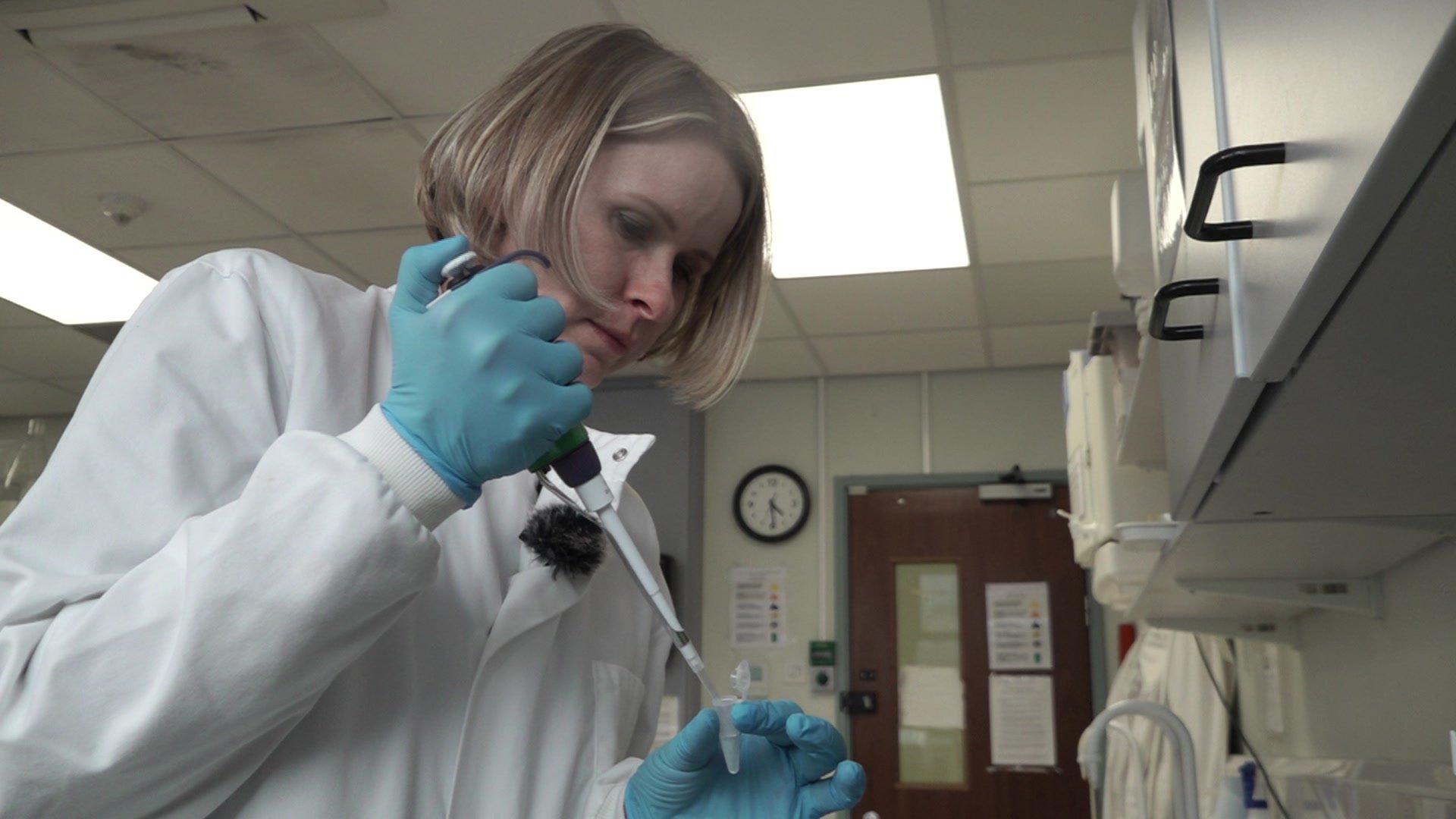
Dr Magna Meissner is leading the study at the All Wales Medical Genomics Service
The trial, involving the All-Wales Medical Genomics Service in Cardiff, Illumina technology and the Life Sciences Hub Wales could also provide an insight into future use of the technology for other cancers.
It comes as the Welsh government announced a new diagnostic strategy, to "rapidly scale up capacity".
Lung cancer is the fourth-most common and the leading cause of cancer deaths in Wales.
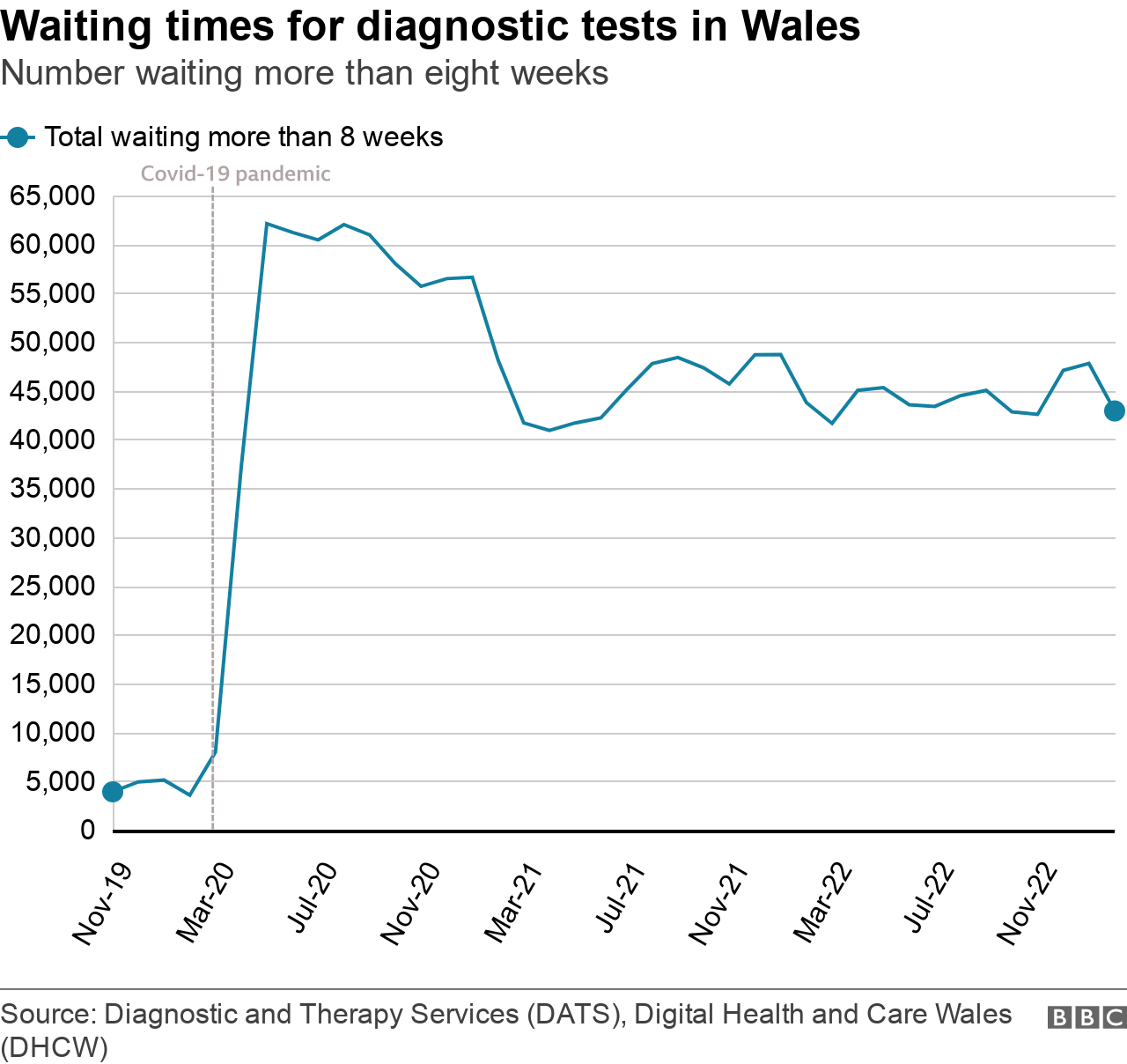
The most recent data shows just over half of patients in Wales start the first cancer treatment within the 62-day target, though statistics are not collected for those whose cancer has returned.
One-year survival rates for patients with stage four disease is only 16%.
The "liquid biopsy" tests detect multiple cancer markers and it is hoped the NHS in Wales could be the first part of the UK to both test and analyse samples.
Dr Meissner explained the current tissue biopsies can be very uncomfortable for patients but they are necessary to pinpoint the exact type of cancer and treatment required.
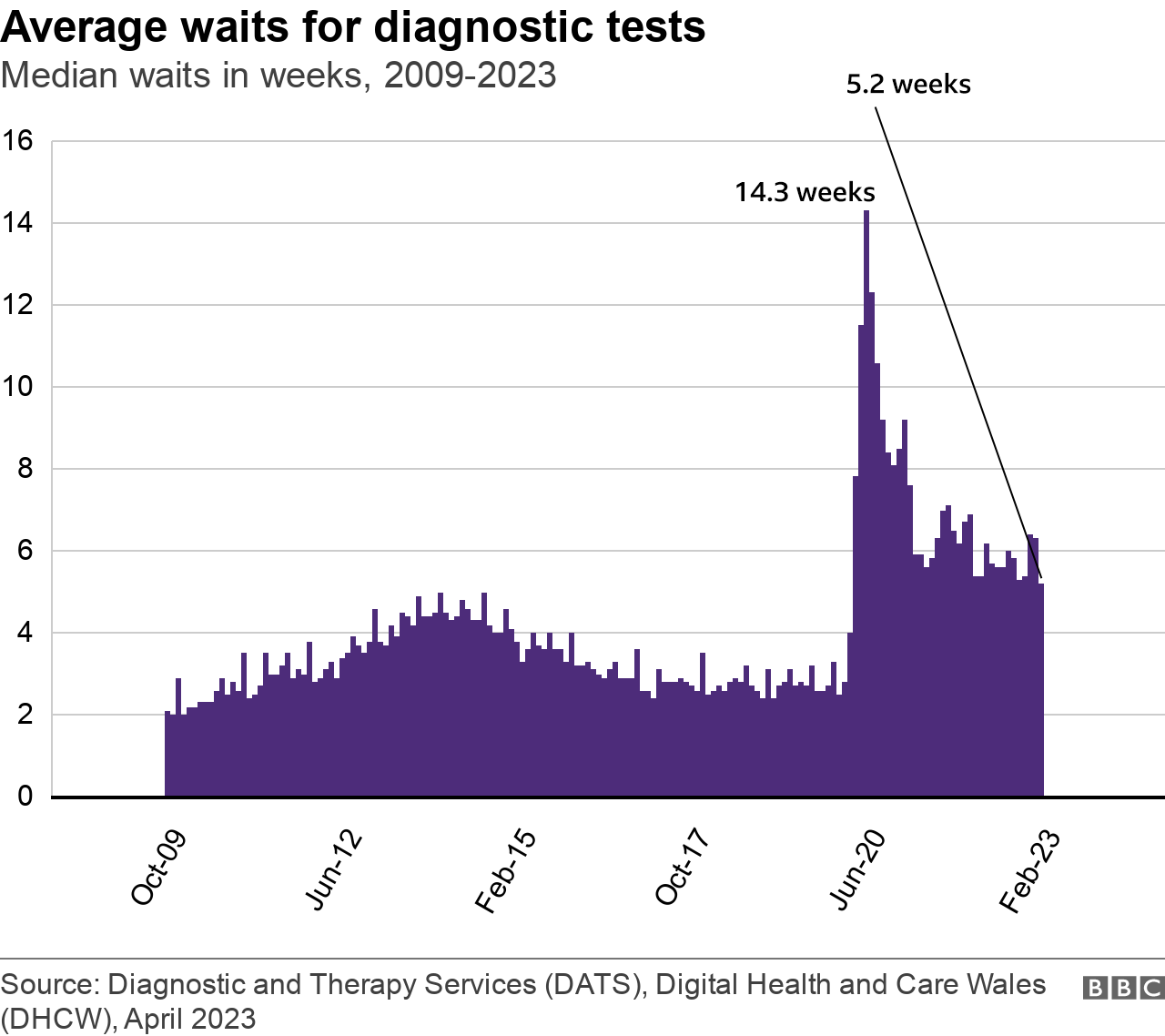
Craig Maxwell is one of the patients who has worked with the research team after being diagnosed with an incurable, inoperable type of lung cancer at the age of 40.
"From the point of discovering my tumour, it took a stressful and hard 72 days to identify my cancer," he said.
"But this this new technology will help support and deliver results quicker, allowing cancer patients to get treatment sooner and help them plan for the new life that exists in front of them.
"Wales is so lucky to have amazing nurses and doctors who support us through this pathway. We all have a responsibility to make sure they have the best and most up to date technology available to them."
Health Minister Eluned Morgan said: "We have long waiting lists and about 80% of people on those waiting lists need some kind of diagnostic intervention, so we've got to get the diagnostics right if we want to bring down those waiting lists.
"This is all part of the strategy to streamline things - to invest in the latest technology to get people through the system, much quicker.
"What we've got here in Cardiff is cutting-edge technology which is world-leading."
- Published16 August 2022
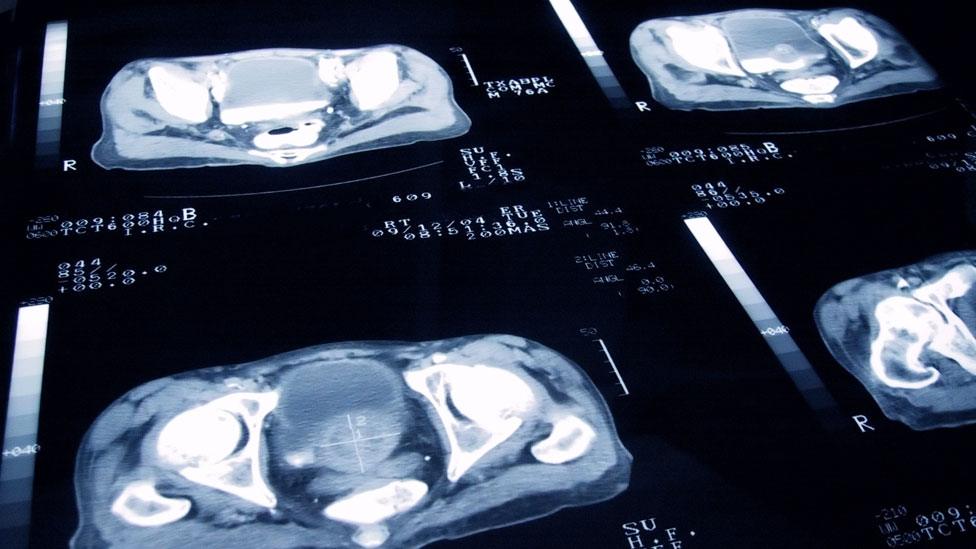
- Published9 August 2022
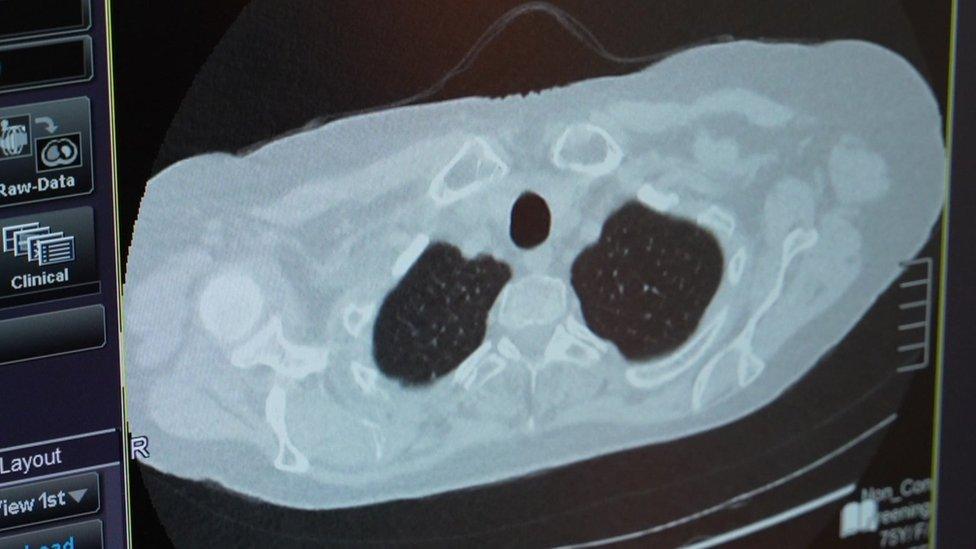
- Published13 August 2020
